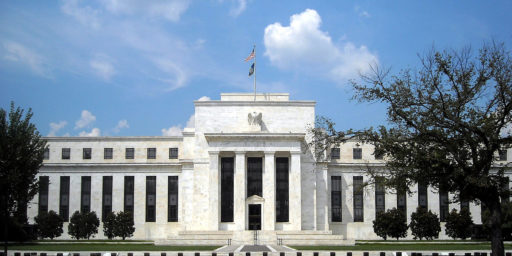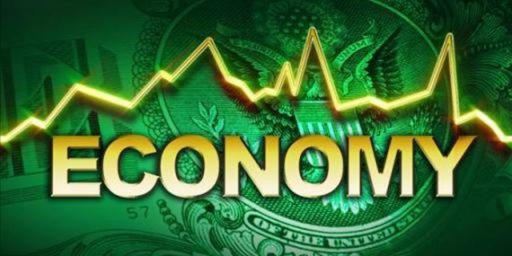Fed “Spitting in the Wind”?
The Federal Reserve’s new proposal to help “unstick” stuck credit markets sounds a bit dubious.
Nov. 26 (Bloomberg) — The Federal Reserve’s new $800 billion effort to combat the financial crisis is designed to make credit more accessible to shaken consumers who aren’t sure they want more debt.
Households and lenders may not respond much because of the wealth destruction from plunging property and stock values, and the deepening economic slump, economists say. That means banks may end up returning the Fed’s new liquidity through deposits at the central bank.
The idea that things can get back on track and prevent a recession, or at least mitigate its effects by enticing reluctant consumers into taking on new debt when they already have a considerable amount strikes me as wishful thinking. The problem is that many consumers see a recession is coming if not already here. They figure the chances of losing their job has gone up. So now is the time to reduce spending, reduce debt if possible and certainly not taking on more debt.






One of the weird things about the strategy is that it’s more likely to jump-start the Chinese economy than ours. Unless they think that people can be induced into buying another house.
But they might be going to college and still want to have access to student loans. Or maybe they’re in good enough shape to buy a car, and hence might want access to an auto loan.
You are broadly correct, but that does not mean that no one wants credit.
I know next to nothing about economics. But in a global economy, would jump starting the Chinese economy eventually trickle back to the U.S. (this is a real question, not a jab at the original comment)?
Well Matt to the extent that it stimulated exports from the U.S. it would help, but I believe we import more from China than we export to China, so I’m not sure how much it would help. Dave is more familiar with China issues, so your best bet is to wait for him to reply or see if he writes anything on his blog, the Glittering Eye (just click on his name up above).
China imports as little from us as they can get away with. Rather than use the dollars they get when we buy goods from them to buy from us, they’re using them to buy T-bills or just sitting on the cash.
I heard that waste cardboard exports from the US to China were down. The painful part of that statistic is the nature of the trade: they sell us stuff, we unwrap it, recycle the cardboard, and they use it to wrap more stuff for us.
(Scrap in general is a big export isn’t it? Probably some machine tools, still, I hope.)